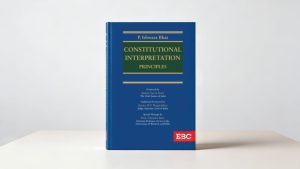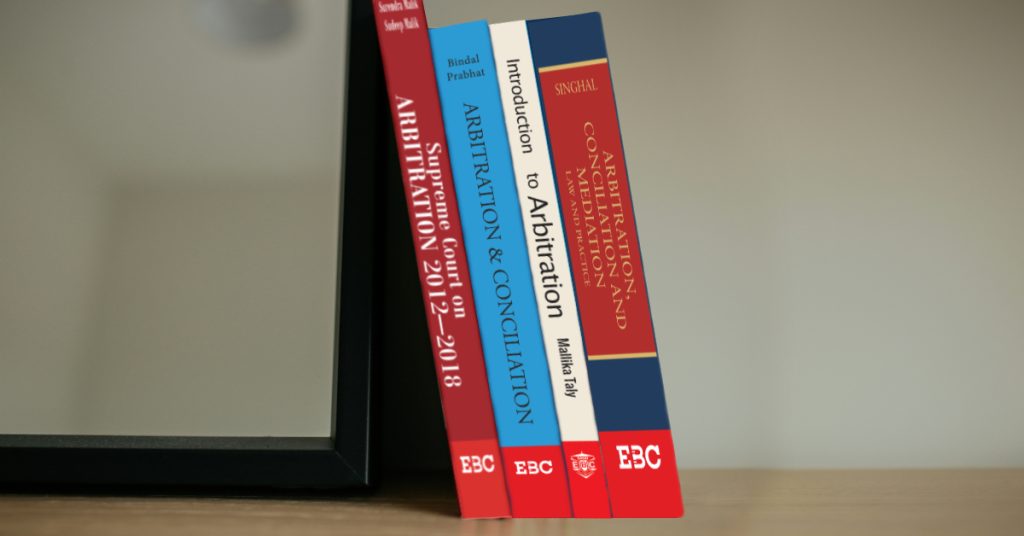
Step into the world of arbitration with books that clarify, challenge, and elevate your legal thinking. These top ten titles are must-reads for every law student, advocate, and arbitrator.
Arbitration, Conciliation and Mediation: Law and Practice
by M.L. Singhal
With India’s courts burdened by a massive backlog of cases, alternative dispute resolution (ADR) mechanisms like arbitration, conciliation, and mediation are increasingly favored for being faster and more effective. This commentary on Arbitration, Conciliation and Mediation: Law and Practice offers a clear, section-wise analysis of the Arbitration and Conciliation Act, 1996 and the newly enacted Mediation Act, 2023. It covers key procedures, appointment of arbitrators and conciliators, enforcement and challenges of arbitral awards, and incorporates the significant amendments of 2015, 2019, and 2021. Designed for practical use, this resource is essential for arbitrators, mediators, advocates, judges, corporate counsel, and legal practitioners seeking a comprehensive yet accessible guide to ADR law in India.

International Commercial Arbitration: An Introduction
by Rohith M. Subramoniam and Navya Jain
This well-researched and thoughtfully written book provides a detailed introduction to the fundamentals of international commercial arbitration, with a strong emphasis on the Indian legal framework. It is ideally suited for beginners looking to understand the essentials of the field, while also serving as a practical reference guide for legal professionals and arbitration practitioners. The book covers both the Arbitration and Conciliation Act, 1996 (India) and the UNCITRAL Model Law on International Commercial Arbitration (1985), offering readers a well-rounded foundation in theory and practice. It incorporates recent developments in international arbitration, supplemented by key case law and judicial excerpts from various jurisdictions. Practical illustrations, sample clauses, forms, and legislative materials are included to enhance real-world understanding.
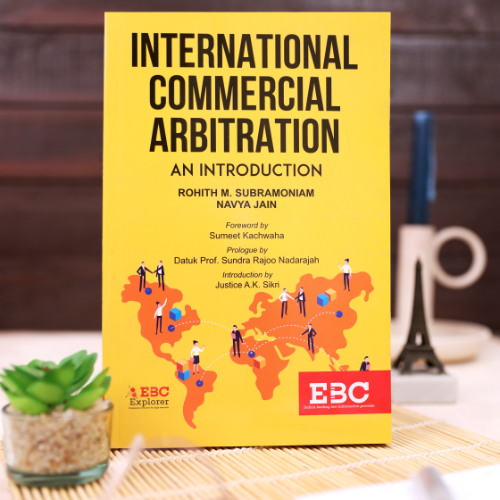
Supreme Court on Arbitration (1950 to 2024) (In 4 Volumes)
by Surendra Malik, Sudeep Malik
This four-volume encyclopaedia offers an authoritative and comprehensive digest of Supreme Court rulings on the Law of Arbitration and Conciliation in India, spanning from 1950 to 2024. Each volume captures key legal developments under the Arbitration and Conciliation Act, 1996, with Volume 4 reflecting the most recent jurisprudence and amendments up to Act 32 of 2023. The commentary is supported by detailed editorial analysis, case summaries, and statutory texts, including both Indian and international instruments such as the UNCITRAL Model Law and the New York Convention. Designed for easy navigation and in-depth research, this work is an indispensable resource for arbitrators, judges, lawyers, and legal scholars involved in arbitration and dispute resolution.
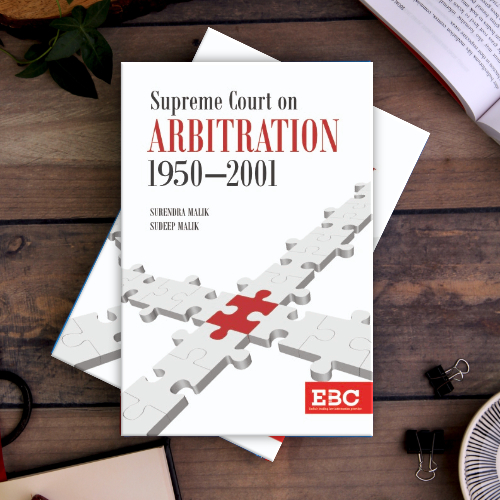
Indian Arbitration Law Review (IALR)
by NLIU Bhopal
The Indian Arbitration Law Review is a specialized, peer-reviewed journal published annually by the National Law Institute University, Bhopal (NLIU), with the support of L&L Partners Law Offices and the Eastern Book Company. Managed by a new generation of lawyers passionate about arbitration, the journal provides a focused platform for scholarly and practical engagement with arbitration law. It features long and short articles, case comments, and book reviews, offering academics, practitioners, and students timely insights into the evolving landscape of arbitration in India and beyond.
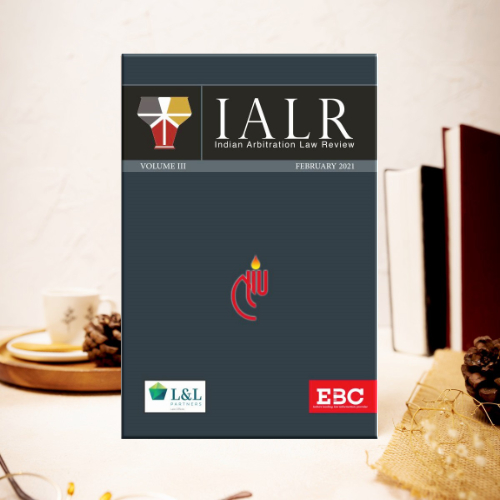
Avtar Singh’s Law of Arbitration and Conciliation and Alternative Dispute Resolution (ADR) Systems
by Saurabh Bindal
This updated edition of Dr. Avtar Singh’s Law of Arbitration and Conciliation, revised by Saurabh Bindal, offers a concise yet comprehensive overview of arbitration law in India—from the 1940 Act to the latest developments under the Arbitration and Conciliation Act, 1996. It covers key amendments from 2015, 2019, and 2021, including timelines for proceedings, institutional arbitration reforms, and changes to enforcement provisions. With recent judicial interpretations also incorporated, this book is an essential guide for law students, practitioners, and judges navigating modern arbitration in India.
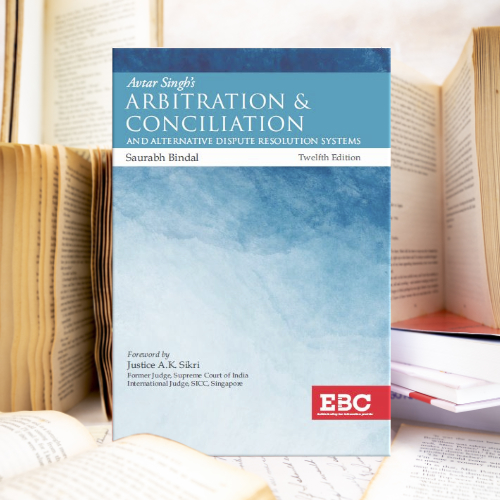
Introduction to Arbitration
by Mallika Taly
Introduction to Arbitration offers a clear and concise explanation of the Arbitration and Conciliation Act, 2006, along with its historical roots in the Arbitration Act, 1940. Designed for ease of understanding, the book covers key topics such as domestic arbitration, the judiciary’s role, international commercial arbitration, enforcement of foreign awards, and other ADR methods like negotiation, conciliation, and Lok Adalats. Featuring short chapters, updated case law, chapter summaries, and a comprehensive question bank, it serves as an excellent resource for students and beginners. The book also includes free access to EBC Explorer™—a digital platform with case law databases, teaching tools, revision aids, and self-assessment features to support both learners and educators.

Arbitration Law- A Primer
by Mallika Taly
Arbitration has emerged as a cost-effective and speedy alternative to traditional court litigation, making its understanding essential not only for judges and lawyers but also for entrepreneurs, managers, students, and academicians. This book provides a clear and concise introduction to arbitration law, covering the Arbitration and Conciliation Act, 2006, and its predecessor, the Arbitration Act, 1940, within today’s legal framework. Beyond basic concepts, it explores arbitration proceedings, judicial intervention, international commercial arbitration, and the Arbitration and Conciliation (Amendment) Bill, 2003, with important case summaries included at the end of each chapter. Fully updated with recent legislative and judicial developments, this primer is an invaluable resource for anyone seeking to grasp the fundamentals of arbitration in India.

Mediation Law: A Kintsugi
by Navya Jain
This book offers readers a comprehensive introduction to mediation, covering fundamental concepts, practical guidance on conducting mediation, and detailed explanations of drafting mediation clauses and settlement agreements. It traces the evolution of mediation in India, highlighting how earlier fragmented legislations have been unified under the Mediation Act, 2023. The author thoroughly explains the terminology, roles, and responsibilities of all participants involved in mediation, emphasizing their impact on the process and its outcome. With practical examples and clear explanations, this book is an essential resource for mediators, law students, practitioners, and scholars seeking to deepen their understanding of mediation as an effective alternative dispute resolution method.
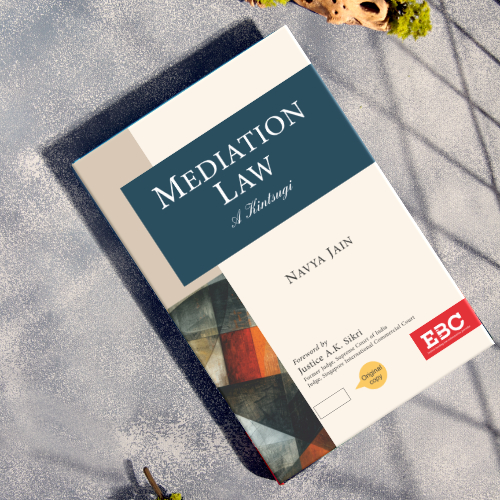
EBC Learning Course on Arbitration Step-by-Step, 2nd Edn
by Mallika Taly
Arbitration has emerged as one of the most powerful and effective mechanisms for alternative dispute resolution, offering parties a cost-effective and timely means to resolve conflicts through an impartial third party. This course covers essential concepts in arbitration law, including the initiation of arbitration proceedings, the appointment and removal of arbitrators or arbitral tribunals, enforcement of arbitral awards, appeals, and the termination of arbitration processes. In addition to an in-depth study of the Arbitration and Conciliation Act, 1996, the course also addresses the latest legislative updates and significant developments arising from the 2015 and 2019 amendments.












